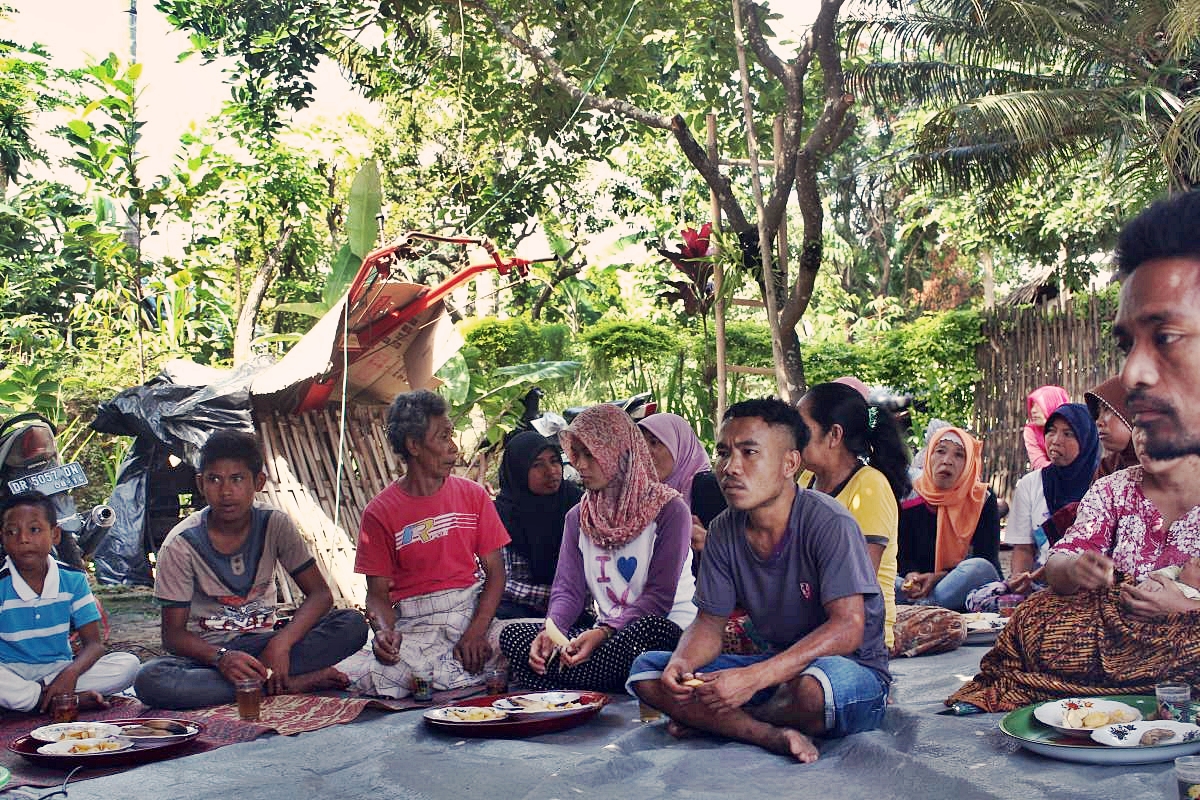
pengetahuanhijau.com - Sentul Asli the Green Energy Village apparently is a well-deserved epithet. This is especially true as all of its residents take advantage of biogas as the source of enegy for their cooking needs. In order to reach this hamlet, we will have to travel through rocky and slighlty steep roads. However, the green vistas extended on the left and right sides have turned our more than 100 km away journey from the City of Mataram into a pleasant one. It is clearly visible that the fields surrounding the hamlet situated at Pendua Village, Kayanagan Subdistrict, North Lombok is quite fertile, clean water rushes in the gutters on the roadside, while we will discover twice or three times collective cowshed belonging to the local farmers’ group. Out of these collective cowsheds, the residents will collect manures to fill their reactors other than collecting the manures from their private cowsheds.
A total of 55 heads of family inhabit Sentul Asli Village. They have been introduced to Biogas produced by manures since 2010 through Biru (Domestic Biogas) programme organised by Hivos together with Rumah Energi. So far, local residents have taken advantage only the biogas. For that purpose, Hivos-Yayasan Rumah Energi (YRE) Consortium, through MCA-Indonesia funding have continued their counselling efforts in the hamlet to introduce additional benefits to the community rather than just the biogas. With respect to such intention, Hivos-YRE has delivered extension and training services on August 13 to maximise the benefit of biogas waste product frequently referres as bio-slurry.
Bio-slurry has the characteristics which are equally beneficial with the biogas generated. Bio-slurry may be used as organic fertilisers both in the liquid and solid forms. This is because bio-slurry both in its solid/liquid forms contains microbes which are useful for soil remediation.
Other than bio-slurry’s use as fertilisers (both in liquid and solid forms), it may also be used for various other purposes. Fresh bio-slurry may be use as a media culture for earthworm and cat manure, basic fertilisers for the field and ponds, mix culture media of Tubifex worms and eels, as well as mix culture of Azolla and Duckweed. Second, solid bio-slurry may be utilised as basic fertilisers of fields and ponds, mix culture media of Tubifex worms and eels, soil conditioner, mix media of mushroom as well as mixture of alternative feedstuff for fish and ducks. Third, filtered liquid bio-slurry may be used as bio-fertilisers, organic pesticides, decomposer, and phytohormones, seed protection, as well as cowshed deodorisers.
During the recent months, residents of Sentul Asli Village have started to utilise liquid fertilisers and compost on their agricultural fields. Some of the cultivated commodities are chilli, tomato, and papaya. To maximise the horticulture development in this hamlet, the community associated with Horsepen (Sentul Asli Pendua Horticultures) Farmers’ Group have received some advocacies from Petuah Consortium (the University of Mataram) which is one of Green Knowledge MCA-Indonesia’s Grantee. Through advocacies received from both Grantees, it is expected that the dream of Horsepen Farmers’ Group to become an Organic Farmers’ Group will even be faster to turn into reality. Additionally, through the potential of the existing bio-slurry, the local residents are encouraged to secure the skills to process them into compost as well as duckweed development. The farm-produced crops are not only for household consumption but also distributed to supply the markets in other districts.


